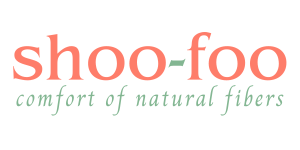
Health Benefits of Flax Linen Sheets
SHOO-FOO TeamShare
For anyone who is looking to update their bedsheets but is concerned about buying eco-friendly products, flax linen sheets are one of the best options on the market today.
People in Europe have been using flax linen sheets for decades because they are traditionally made in the region. Flax linen is an organic fiber extracted from the flax plant's stalks. For years, luxury linen sheets have been the go-to option for upmarket bedcovers, however, we are currently seeing a huge shift in the market.
Due to the intricate entwined structure of the material, which is often denser than cotton fabric, linen sheets offer a more luxurious feel. These long-lasting flax linens become softer with each wash and last for years.
Keep reading as we discover the health benefits associated with the use of flax linen sheets and why you should consider this material for one of your next set of sheets.
The Health and Environmental Benefits of Linen over Cotton
If you’ve had the chance to test out flax linen sheets, there's a strong chance that you don't want to go back to using cotton sheets.
So, what makes Flax Linen so unique? Here’s everything you need to know about flax linen sheets.
1. Highly Absorbent and Moisture Wicking Qualities
Flax fibers are hollow, and their structure allow to naturally absorb moisture. Flax linen is made entirely out of flax plants, so it wicks away the moisture from your skin. Flax linen sheets absorb at least twenty percent of their weight in moisture before they start feeling wet. This allows you to sleep comfortably, leaving your skin feeling dry throughout the year.
2. Thermoregulation
The first thing to look for when choosing sheets is what the fabric is made of. Natural material, like linen, is better at keeping your body cool than synthetic fabrics. Even in hot weather, flax linen is pleasant to sleep in. The fabric is breathable, which allows the surface of your skin to cool down quickly. You may notice that you sweat more wearing artificial materials in hot and humid weather conditions, as the moisture clings to your bed linen.
3. Gets Softer Over Time
The linen may feel as though it is super crisp to touch (especially when compare to bamboo) when you first buy it, but with each wash, it gets softer. Linen fabric becomes supple and soft to touch with regular use and washes.
4. Hypoallergenic and Anti-Bacterial
Just as hemp and bamboo, linen possesses the natural characteristics of being skin-friendly, anti-bacterial, and hypoallergenic. This was reflected in its usage in the past, as it was often used as a bandage in ancient times. It is very responsive to frequent washing and is a durable and long-lasting fabric.
5. Durable & Long Lasting
Although linen is very lightweight, it is highly durable as it's approximatively 30% stronger than cotton fabric. If you opt for high-quality flax linen sheets, you should be able to use them for several summers.
6. Eco-Sustainable
Environmental consciousness affects almost every aspect of our lives. Even if you are putting in your best effort to recycle your trash and minimize the use of plastic, you might not have thought of selecting sustainable bedcovers.
Linen is considered one of the most biodegradable fabric that you can use for your bedding. It is durable and resilient, using far less water in its consumption than cotton. Linen is functional and the most sustainable fiber to produce when compared to cotton.
Flax plants require less water and relatively fewer pesticides than cotton to grow well. It only uses 6.7 liters of water across its lifecycle, whereas cotton consumes about 2,700 liters.
Why Should We Choose Unwashed Linen Sheets Instead of Stonewashed Linen?
Pre-washed flax linen has a crisp feel, but it will continue to soften with each wash. We recommend avoiding stonewashed linen due to the chemicals involved in the production process, which cling to the sheets. This ensures that anyone with sensitivities and allergies remain unexposed to those irritants found in the chemicals.
Why introduce chemicals into the fabric to make it soft when flax linen gets softer naturally after each wash?
How to Wash Flax Linen Sheets?
Flax linen is easy to take care of and can be washed repeatedly without causing piling. The fabric naturally gets softer with every wash. Here’s how you can get the most out of your new flax linen sheets.
· Machine Safe Fabric
Flax linen is 100% machine safe and washes well in cold water—this helps retain the colors and keep them vibrant. Make sure you’re putting it on a moderate spin cycle.
· Avoid Whitening Agents
It is normal for people to add whitening agents with chlorine when washing their sheets, but this can harm the consistency of the fabric. It will add blotches and give your sheets a yellow hue. Avoid using whitening agents at all costs.
· Tumble Drying Your Sheets
After you spin the sheets on a moderate setting, they can be dried in a tumble dryer. Just make sure the temperature isn’t too high.
· Ironing Flax Linen Sheets
The rustic look of the sheets is essentially the linen fabric's biggest charm. However, if you prefer to go for an even finish, you can iron your sheets. Try and iron linens on the reverse side while it still has moisture in it—make sure you do it on low heat without the steam.
· Get It Cleaned Professionally
Get in touch with dry cleaners that know how to handle linen fabric. Once trust is established, you can hand over your sheets to them so that they clean them for you.
FINAL THOUGHTS!
Flax linen sheets have a unique structure. They exude luxury, are eco-friendly, and offer numerous health benefits. The threads used by Shoo-Foo are 100% sustainable, so you can feel good about your choice each time you get into bed at night.
Check out our full selection of flax linen sheets here.
And here you may learn more about other natural fibers which are beneficial to our health and our planet. We encourage you to learn more about fibers such as kapok, hemp or bamboo which are beneficial to our health and our planet.

